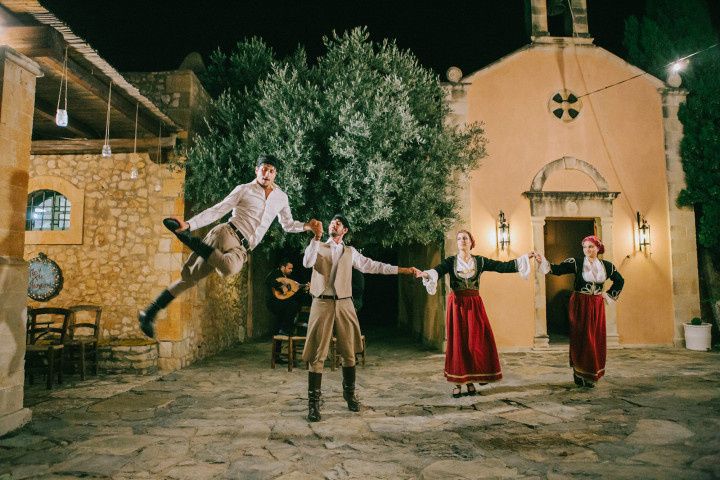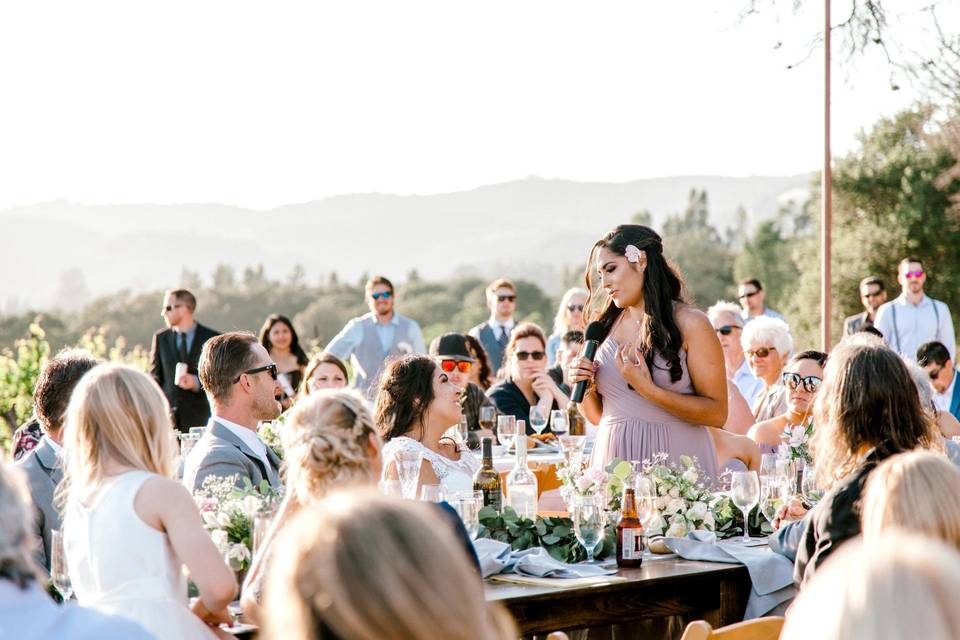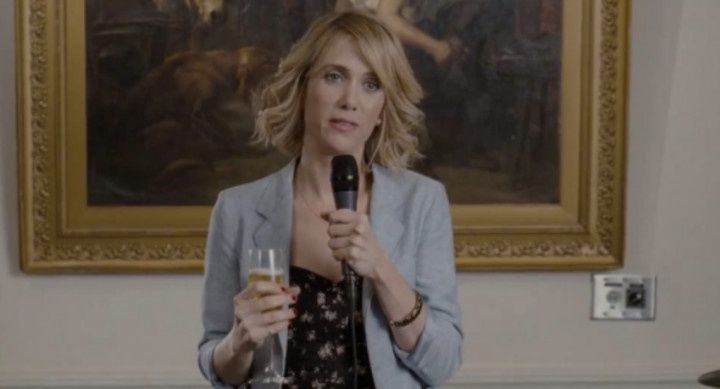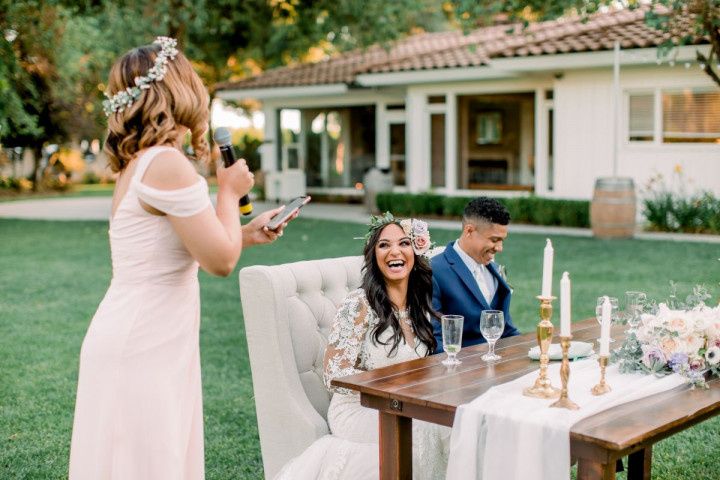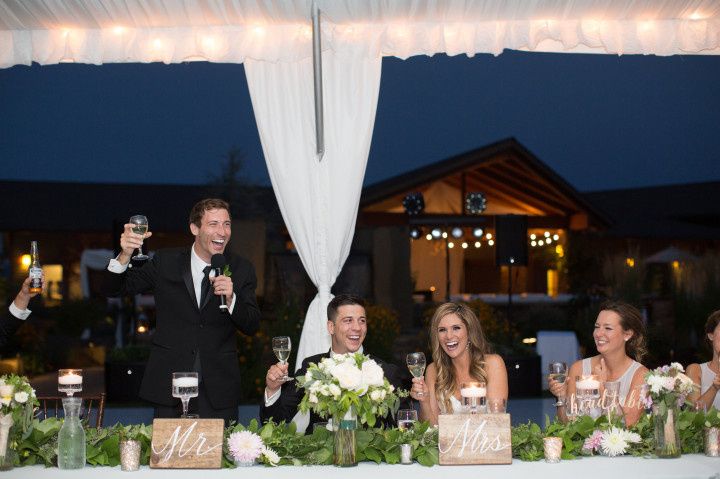How to Give a Wedding Toast if You Hate Public Speaking
If you’re feeling stressed about giving your wedding toast, read on for a few tips and tricks.
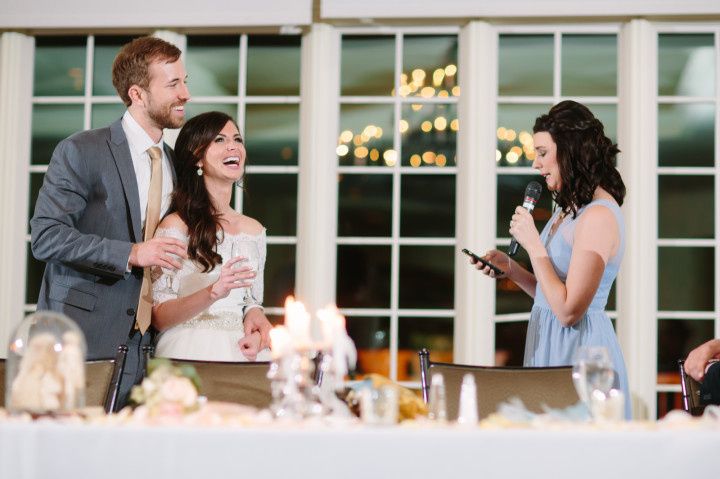

Photo: The Grays Photography
Unless you’re a life coach or a motivational speaker, you probably have at least a little bit of fear around public speaking—and that’s totally OK. Standing up in front of people, some you know and some you definitely don’t, is scary for many reasons: you might stumble over your words; cry uncontrollably or laugh awkwardly; spill your drink; or make a joke that falls completely flat. These fears are totally normal, and most of us have them!
The good news is, if you're giving a speech at a wedding, absolutely everyone will forgive you if anything goes wrong—they all know how scary it is to be in the speech-making hot seat. Plus, your wedding toast only has to be a couple of minutes long, so keep it short and sweet and you’ll be back at your table in no time.
If you’re still feeling stressed about giving your wedding toast, read on for a few tips and tricks.
Keep it short.
Great news for nervous toasters: Your wedding speech should be no longer than about three minutes. Under a minute is probably too short, but if you’re somewhere between two and four minutes, you’re good to go! It’ll fly by when you get up there. Write it down, say it out loud, and time yourself to be sure you get in and out as quickly as possible.Practice.
The best way to deal with pre-toast nerves is to write your speech down (or key parts of your speech, at least) on note cards and practice. Practice more than once. Do your speech in front of the mirror and time yourself. If you’re comfortable, practice it on a friend or your partner. But saying it out loud before the wedding day is sure to help ease your panicked mind.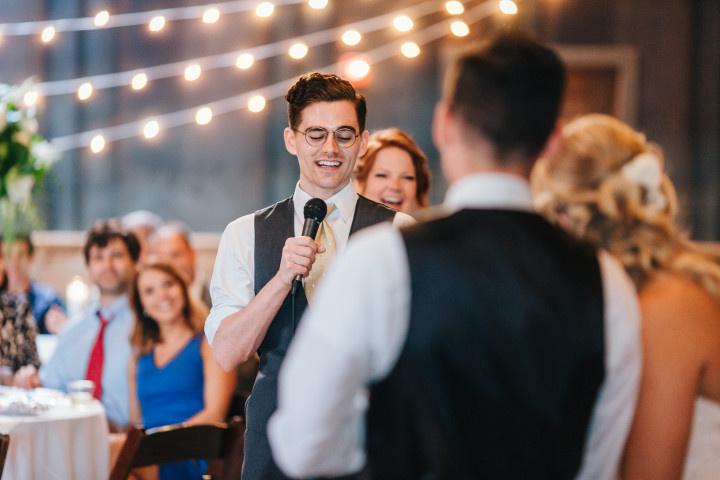
Photo: Erin Morrison Photography
Be nice.
Years of wedding movies have taught us there’s always one guest who thinks they’re giving a roast instead of a toast. Do not do this. It’s absolutely fine to insert humor into your speech, but embarrassing a bride or groom on their wedding day is just unkind. And skip the inside jokes, too, they’ll make most guests feel left out and that will make your newlywed friends uncomfortable. Being nice will feel much more comfortable in front of a group that includes aunts, uncles, and grandparents.Use a formula.
If you’re stumped on what to say, try following this formula: Start with who you are and how you’re connected to the couple, then offer a memory about the couple or something your friend has said or done for their partner; this is where you can be sentimental or funny, but remember to be nice and don’t make jokes that will embarrass the couple. Finally, wrap it up by sharing your hopes for your friends’ marriage or a quote about love and partnership. And don’t forget to raise a glass to toast the newlyweds!Write it down.
Write the speech out word-for-word, or just jot down the key points you want to make—choose the option that makes the most sense for you. But don’t get up there and wing it—that’s a surefire way to give a toast that tanks and walk away feeling even worse about public speaking than you did to begin with.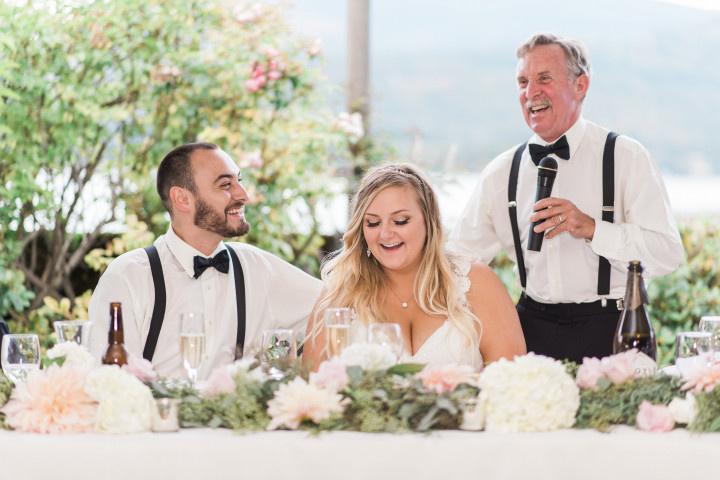
Photo: B. Jones Photography





